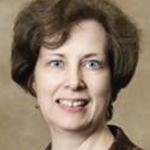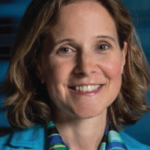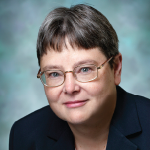ARHP Member Named to AOTF Board of Trustees (2018–20)
 Nancy A. Baker, ScD, MPH, OTR, recently took on a new role, joining the American Occupational Therapy Foundation’s (AOTF’s) Board of Trustees. The AOTF is a charitable organization with a mission to support scientific and educational programming for occupational therapy. It provides most of the grants and many of the scholarships that support OT researchers and scholars, and strives to increase public awareness and understanding of the importance of everyday activities (occupation) in health and well-being.
Nancy A. Baker, ScD, MPH, OTR, recently took on a new role, joining the American Occupational Therapy Foundation’s (AOTF’s) Board of Trustees. The AOTF is a charitable organization with a mission to support scientific and educational programming for occupational therapy. It provides most of the grants and many of the scholarships that support OT researchers and scholars, and strives to increase public awareness and understanding of the importance of everyday activities (occupation) in health and well-being.
Dr. Baker is an associate professor in the Department of Occupational Therapy at the School of Health and Rehabilitation Sciences, University of Pittsburgh. She is also an associate editor for OTJR: Occupation, Participation and Health. Her research interests are in the areas of work-related musculoskeletal disorders related to computer use, conservative treatments for carpal tunnel syndrome and work disability for people with arthritis.
She received her Doctor of Science in therapeutic studies at Boston University in 2000, and a Master of Public Health in epidemiology at the University of Pittsburgh, Graduate School of Public Health in 2009. Before obtaining her doctoral degree, she was a clinical therapist for 11 years, specializing in adult physical disabilities and industrial rehabilitation. She also trained in ergonomic assessment and intervention.
New Chair for Lupus Medical-Scientific Advisory Council
 The new chair of the Lupus Foundation’s Medical-Scientific Advisory Council is Karen H. Costenbader, MD, MPH. She is one of 37 members scattered across North America who advise the Foundation and guide the Board of Directors’ efforts “to advance lupus research and treatment, advocate constructive public policies and improve public and professional education,” according to the Council’s website.
The new chair of the Lupus Foundation’s Medical-Scientific Advisory Council is Karen H. Costenbader, MD, MPH. She is one of 37 members scattered across North America who advise the Foundation and guide the Board of Directors’ efforts “to advance lupus research and treatment, advocate constructive public policies and improve public and professional education,” according to the Council’s website.
As chair, Dr. Costenbader will help set the Foundation’s research agenda and review grant applications. She believes there’s a need to improve the involvement of the disadvantaged lupus-patient population in clinical trials. “Randomized placebo trials are not attractive to many patients,” she says. “If they are doing well, they’re not interested in possibly getting the placebo. If they are very sick, they don’t have the time: their lives are too full with coping.”
It is an exciting time to be involved in lupus research and treatment. In the past 50 years, there had been one new FDA-approved drug, she says, but now “there are new drugs in the pipeline.” As far as treatment goes, she sees a new push in professional development, including preceptorships, for practitioners who treat lupus. There is also more awareness of how important patient advocacy is for underserved, vulnerable communities. Not only are about 90% of lupus patients women, but a large proportion of them are non-white (e.g., black, Hispanic, Asian and Native American).



